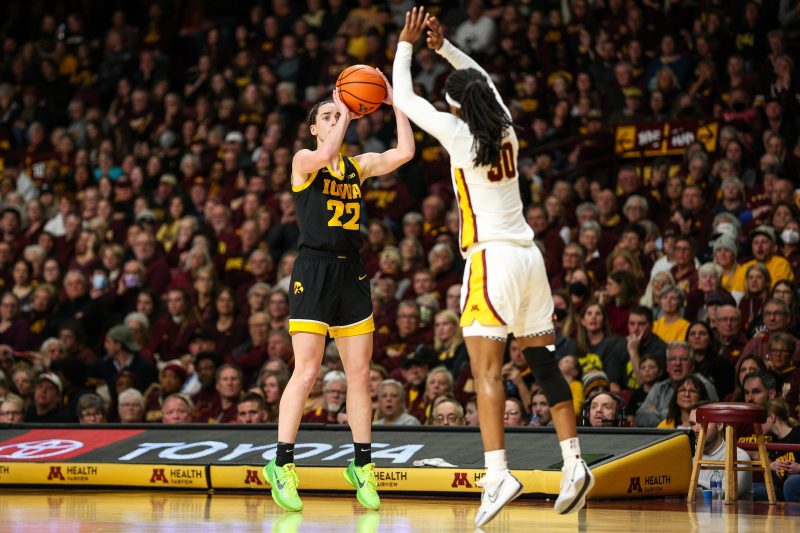
Caitlin Clark changed view of women athletes. That’s bigger than record
The record, and the numbers behind it, really don’t matter.
How many points Caitlin Clark has when she finishes this season, how many more that is than Pete Maravich had — they’ll all eventually become footnotes. Future answers to trivia questions.
What does matter is how Clark’s assault on the record books captivated the country, reflecting a seismic shift in how women’s sports, and the athletes who play them, are viewed.
Think about it. Before the last few months, did you know who college basketball’s all-time scoring leader was? Without Googling it? Or that Kelsey Plum held the women’s record? But only because the dim-witted NCAA counts AIAW wins for coaches but not points for players?
The very good odds are, unless you’re a diehard fan or a family member, no, you did not. Or if you did, you’d have been hard-pressed to come up with numbers for Maravich or Plum or Lynette Woodard.
While there are a few records in sports that live in our active consciousness — most Super Bowls won, perhaps, or home runs hit — most are eventually tucked in the recesses of our minds, tidbits of history we need help to recall.
But no one will ever forget this remarkable season, in which Clark dwarfed everyone else, in pretty much every sport.
Interest in women’s sports is skyrocketing, but the intensity of the spotlight on Clark and her quest was something altogether different. Clark played to sold-out gyms everywhere she and Iowa went. People were so eager to be witness to history they lined up hours before tipoff, often braving cold, snow and sometimes both. Little girls and boys were sporting her jersey and imitating her signature logo 3.
There was a scoring tracker — sponsored, no less — during broadcasts as she closed in on each of the records. Ratings were bonkers, regardless of who was broadcasting the game.
It wasn’t just women or women’s basketball fans who were enthralled, either. Men whose eyes used to glaze over at the sight of a women’s game were now crowding around TVs at sports bars to watch Clark and checking her stats. Sports talk show hosts who’d never bothered with women’s sports before — or, if they did, it was to diminish or demean them — were now devoting significant airtime to Clark and the evolvement of the women’s game.
And aside from a few Neanderthals who, regardless of what they claim, couldn’t beat her in a game of H-O-R-S-E even if she spotted them the first four shots, no one was arguing Clark’s worth or patronizing her game. They were simply marveling at her and appreciating what she was doing. What debates there were about Clark passing Maravich centered around the advent of the 3-point shot and the rule that once prohibited freshmen from playing, not suggestions the women’s game is subpar.
We were transfixed by Clark as an athlete, no modifier needed or asterisk added. That is what matters, and what will be remembered more than the record itself or how many points Clark scored. She has authored a historical shift rather than a historical moment, the tone of the cultural conversation changed for good.
This isn’t to diminish Clark’s accomplishment. Or those of Maravich, Woodard and Plum. But records in sports are made to be broken, athletes come and go, and memories fade. What sticks with us is what these milestones represent, and the emotions that surrounded them when they happened.
We might not remember the exact number of home runs Mark McGwire hit (70) in 1998, but we remember the celebratory feel of the race between him and Sammy Sosa that summer. We might not recall off the tops of our heads how many Grand Slam titles Serena Williams has (23) or whether that’s a record (it’s not), but we know to our core she’s the greatest tennis player there’s ever been.
When Clark breaks Maravich’s record Sunday — she needs only 18 points, and is capable of getting that in a quarter — it will be a historic event. But long after she’s finished playing and the recollection of both the record and her numbers have grown fuzzy, people will remember the winter she dominated both the basketball court and the public consciousness.
That is Clark’s real legacy.
Follow USA TODAY Sports columnist Nancy Armour on social media @nrarmour.
